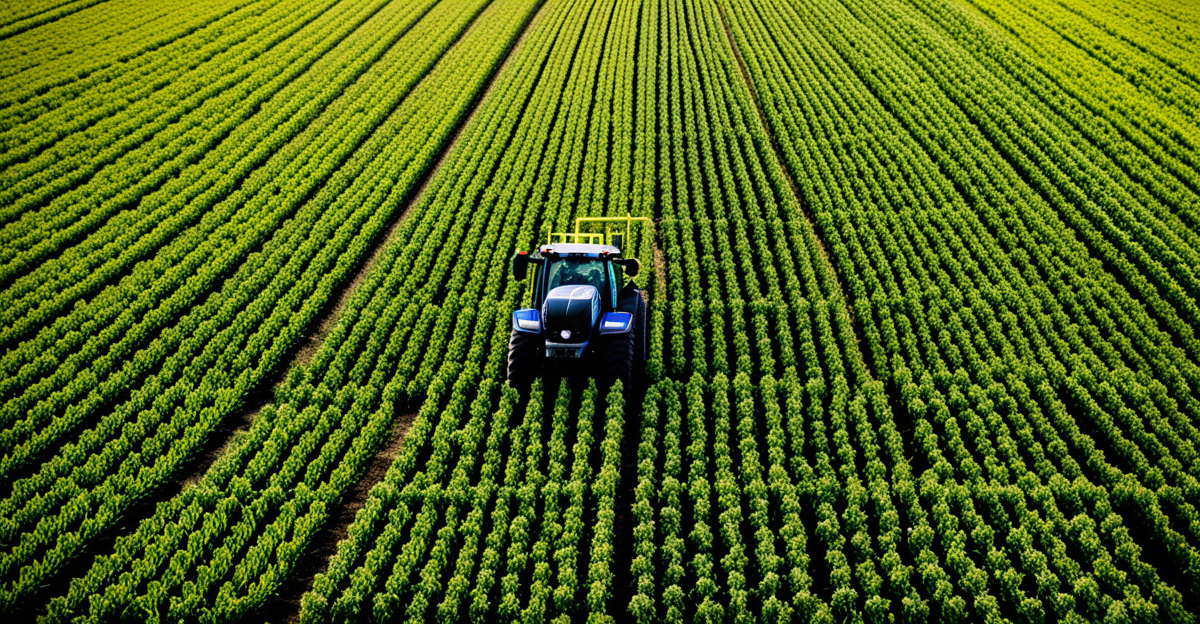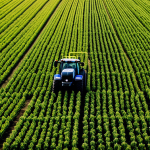Overview of 2023 UK Pesticide Laws
Understanding the UK pesticide regulations 2023 is crucial for anyone involved in agriculture. The current legal framework governs the sale, storage, application, and disposal of pesticides, aiming to protect human health and the environment. In 2023, updates have been introduced that reflect a post-Brexit regulatory environment, where the UK has begun diverging in certain rules from EU pesticide directives.
Key changes in these agricultural law updates include revisions to approved substances lists, stricter controls on hazardous chemicals, and enhanced record-keeping requirements. Farmers and agribusiness professionals must stay informed to ensure full legal compliance, reducing risks of fines or operational disruptions.
Topic to read : Mastering 2023: the definitive uk handbook for tackling incorrect utility bills
Complying with these laws goes beyond simply avoiding penalties. It safeguards crops, soil, water sources, and the wider ecosystem. A proactive approach helps maintain sustainable farming practices and public confidence in the industry. With the 2023 regulations introducing novel provisions and transition deadlines, keeping up-to-date with the evolving requirements is essential for smooth agricultural operations throughout the year.
In sum, awareness and adherence to UK pesticide regulations 2023 is key to successful farming and environmental stewardship in the current agricultural landscape.
Also to discover : Unlocking your blue badge: the comprehensive uk guide to accessible parking success
Major Legal Changes Impacting Pesticide Use
Understanding the new pesticide regulations introduced in 2023 is essential for effective pesticide management. One significant update involves the tightening of controls on hazardous substances. Several chemicals previously permitted under EU law have been banned or restricted in the UK’s distinct framework post-Brexit. This divergence in pesticide policy 2023 reflects the government’s goal to enhance environmental and human health protections.
The changes include expanded lists of prohibited active ingredients and the addition of risk-based evaluation criteria for substances still in use. These updates affect not only which products can be sold but also how and when they may be applied. Farmers and agribusiness operators must carefully review these amendments and adapt their practices accordingly.
Deadlines and transition periods have been set to help the sector comply smoothly. For example, some banned substances require immediate cessation of use, while others allow phased withdrawal periods. Knowing these timelines is vital to avoid unnecessary breaches of the new pesticide regulations. Staying informed about these legal shifts ensures that farmers remain compliant and can plan their pesticide procurement and application schedules without disruption.
Core Compliance Requirements for Farmers
Farmers must adhere to strict pesticide compliance protocols under the 2023 UK pesticide regulations. Central to these are robust record-keeping requirements. Farmers are legally obligated to document all pesticide applications, including product details, quantities used, target crops, and timing. This data must be maintained for at least three years and be readily available for inspection, ensuring transparency and traceability in pesticide use.
Proper storage and disposal form another critical legal obligation. Pesticides must be stored securely in locked, well-ventilated areas that prevent environmental contamination or unauthorized access. Disposal of surplus chemicals and containers must comply with hazardous waste regulations, preventing soil and water pollution.
Additionally, restrictions exist on pesticide purchases; only certified operators may buy certain products, limiting access to risky substances and reinforcing safe use standards. Application procedures must follow label guidelines and legal limits to reduce health risks and environmental harm.
Understanding and fulfilling these legal obligations for farmers promotes responsible pesticide use, mitigates regulatory breaches, and supports sustainable farming. Staying vigilant on documentation, storage, disposal, and application keeps agricultural operators compliant with the evolving agricultural law updates and protects agricultural productivity and ecosystem health.
Pesticide Safety Protocols and Best Practices
Safe pesticide handling is a cornerstone of agricultural safety within the 2023 UK pesticide regulations. Operators must use appropriate personal protective equipment (PPE), including gloves, goggles, and respiratory masks, to minimise exposure risks. Proper training ensures PPE is correctly selected and worn at all times during mixing, application, and equipment cleaning tasks.
Maintenance of spraying equipment is equally important. Routine checks prevent leaks and malfunctions that could cause accidental pesticide release. Calibration ensures accurate dosing, reducing environmental contamination and safeguarding crop integrity. Regular cleaning of machinery avoids chemical residue buildup that poses health hazards.
Environmental protection measures include establishing buffer zones around water bodies, wildlife habitats, and sensitive crops. These zones help prevent pesticide drift and runoff, crucial under the UK pesticide regulations 2023. Adhering to label instructions regarding weather conditions and wind speeds during application further minimises off-target contamination.
By integrating these best practices, farmers not only comply with legal obligations but also actively contribute to sustainable farming. Following this guidance reduces health risks for workers, protects ecosystems, and enhances public trust in agricultural products—all vital outcomes under the updated agricultural law updates.
Licensing and Certification Details
Understanding the pesticide licensing requirements in the UK is fundamental for legal pesticide application under the 2023 agricultural law updates. Only individuals who hold a valid licence are authorised to purchase and apply certain controlled pesticides. This licensing system ensures that certified operators possess the necessary knowledge and skills to handle hazardous substances safely and effectively.
To obtain a licence, candidates must complete approved training courses tailored to the specific pesticide use, covering regulatory compliance, safe handling, and environmental protection measures. These courses typically include both theoretical learning and practical elements, ensuring comprehensive preparation. Licence renewal requires refresher training every few years to keep operators up-to-date with evolving UK pesticide regulations 2023.
Certified operators must maintain detailed records of pesticide usage and licence status, facilitating transparent compliance audits. These records are not only a legal obligation but also support traceability and accountability in pesticide application.
By adhering to licensing and certification requirements, farmers and applicators mitigate risks associated with misuse, contribute to sustainable agriculture, and fulfil their legal compliance responsibilities effectively. Meeting these criteria safeguards both operator safety and the environment, aligning individual practices with national agricultural law updates.
Enforcement, Inspections, and Penalties
Regulatory authorities play a central role in pesticide law enforcement under the 2023 UK pesticide regulations. These bodies conduct routine and targeted inspection protocols on farms and supply chains to verify legal compliance with the agricultural law updates. Inspections often focus on proper record-keeping requirements, storage conditions, and adherence to pesticide application standards.
Common infringements detected include missing or incomplete documentation, use of banned substances, improper storage, and application outside permitted conditions. Authorities employ sampling, audits, and field visits to identify breaches accurately and ensure accountability.
Penalties for non-compliance can be severe, ranging from monetary fines to prosecution. Financial sanctions depend on the violation’s nature and frequency, while serious offenders may face legal action, including suspension of licences. These consequences emphasize the importance of maintaining strict compliance with the UK pesticide regulations 2023.
Understanding these enforcement mechanisms encourages farmers to prioritise pesticide compliance proactively. Being prepared for inspections by regularly updating records, following storage rules, and applying pesticides correctly reduces risks of penalties. Compliance not only avoids legal trouble but also underpins responsible pesticide use contributing to sustainable agriculture.
Actionable Tips to Stay Legally and Safely Compliant
Staying compliant with the UK pesticide regulations 2023 requires a practical, structured approach. Begin with a comprehensive compliance checklist: document every pesticide application accurately, including product details, amounts, and timing. Secure storage in locked, ventilated facilities is essential, alongside proper disposal following hazardous waste rules.
Farmers should strictly follow label instructions and legal limits during pesticide application to avoid violations. Wearing recommended personal protective equipment minimizes health risks, supporting both safety and legal compliance. Regular equipment maintenance, including calibration and cleaning, prevents accidental releases and ensures precision.
Planning pesticide purchases only through certified channels helps maintain adherence to licensing requirements under the agricultural law updates. It also reduces risks associated with use of banned or unauthorized substances. Understanding key deadlines for phasing out restricted pesticides aids smooth operation without disruption.
Integrating environmental safeguards such as buffer zones around water bodies further aligns with best practice obligations. Proactive engagement with training updates and industry support resources keeps operators informed of evolving regulations.
Adopting these actionable tips fosters responsible pesticide use, safeguards farm productivity, and ensures full regulatory compliance—a necessity under the 2023 UK pesticide regulations.







